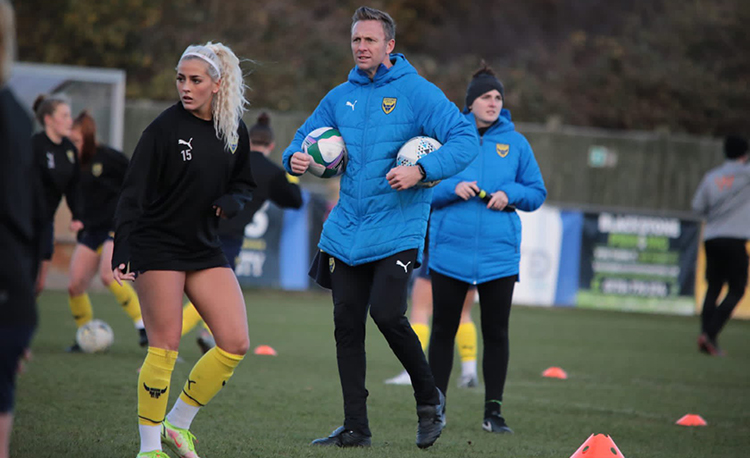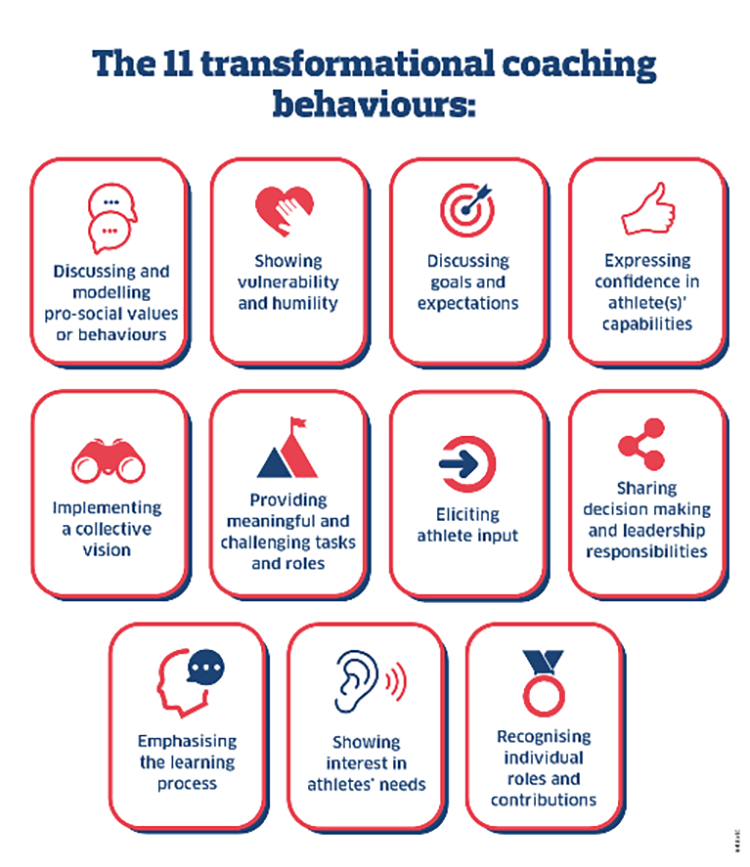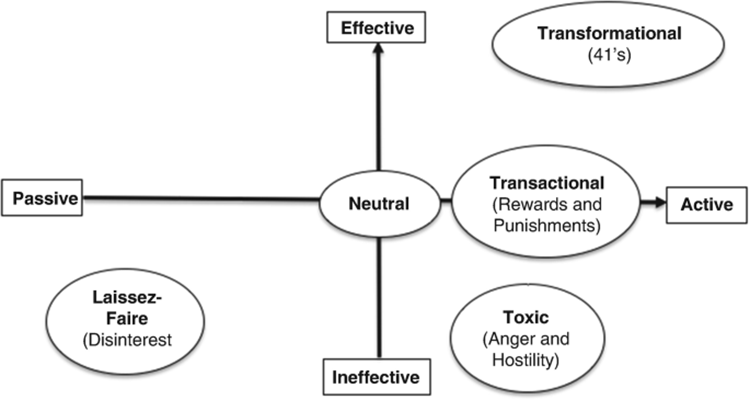You are viewing
1 of your 3 free articles
How to shape your coaching behaviour
Tom Hartley explores the difference between transactional and transformational coaching, how the environment plays a part in shaping the experience of players, and sets you some challenges
Are coaching skills as simple as being transactional or transformational?
Well, like many things in sport, no - it is a lot more complex than that.
My coaching buddy, Russell Earnshaw, once said: "There are only two things that you can control as a coach - practice design and coaching behaviour”, and he is right.
Once you step on to the grass, you can’t control what the players do, but you can be intentional with you own behaviours.
In this article, I will explore the difference between transactional and transformational coaching, how the environment plays a part in shaping the experience of players, and set some challenges for you to try in your own coaching practice.
When you investigate the theme of coaching behaviours, there are oceans of research papers, articles, top tips and opinions on what is good and bad.
The truth is, though, there is no such thing as good and bad behaviours for a coach, aside from fundamentals such as ensuring safeguarding standards and child protection measures are met. Some behaviours are more effective, some less so, and it depends on so many things:
• Context: Where does this practice or competition sit in the big picture of the season or player pathway?
• Development outcomes: What do the players want and need at this moment in time to help them maximise their potential?
• Environment: What is the purpose of the club or system that you are coaching in? Is it for fun, participation, talent, performance?
• Practice type: What are the skills that you are hoping the players will develop or work on during the practice?
• Coaching domain: Are you working in high-performance sport, grassroots coaching, or somewhere in-between?
This list could go on - ultimately, it depends on countless things. As a coach, you must take this information and make both fast and slow decisions on the most effective coaching behaviours to use at any moment.
Easy? No. Complex? Certainly.
Author and researcher Daniel Kahneman has written some groundbreaking work on decision making. He splits it into two types:
• System 1: Fast decisions, which are unconscious, automatic and effortless. These account for about 98% of decisions we make.
• System 2: Slow decisions, which are deliberate, conscious and effortful. These account for the other 2% of our thinking.
Appling these systems to coaching allows us the opportunity to make decisions on our behaviour during practice or competition - more often than not an opportunity to think fast - and when we are designing coaching sessions, an opportunity to think slow.
Professor Chris Cushion from Loughborough University in the UK has spent years researching and gathering insight on coaching behaviours, and coaches’ self-awareness of what behaviours they frequently use.
Interestingly, he found that approximately 80% of coaches have a low self-awareness of the behaviours they use the most - while, in reverse, the players or athletes being coached can articulate clearly and accurately how the coach coaches.
Prof Cushion’s work has identified 23 primary behaviours that coaches use, ranging from instruction and feedback, to questioning and praise.
While his work primarily focuses on the ‘what?’, Professor Jean Cote and his team at Queen’s University in Canada have spent time looking at the ‘how?’.
By joining the dots between transformational leadership theory and coaching practice, they have identified 11 behaviours that, if used frequently by coaches, could lead to positive outcomes for players - including social cohesion, personal and social skills, motivation and performance.
The behaviours (see Fig 1) range from eliciting athlete feedback, to discussing goals and expectations, and even discussing and modelling vulnerability and humility.
All of this research into coaching behaviours connects together, and highlights how important relationships between coaches and their players are, as well as the significance of the coach having a good awareness of what they do during practice and competition.
Drawing more on the work of Prof Cote, Jennifer Turnnidge and the team at Queen’s University have joined the dots between leadership and coaching research, illustrating transactional and transformational coaching behaviours in to the ‘full range leadership model’.
Related Files
Fig 2 shows that adopting a ‘transformational’ approach highlights the coach is active within the delivery of the activity, and effective with the behaviours they are using.
Going back to an earlier point, this diagram is not saying that transformational is good, and transactional is bad, just that there is a difference - and that they will be more effective in different situations.
Recent research from the Football Association’s Women’s High Performance Centre, at St Mary’s University in Twickenham, has highlighted that players in the female game prefer a transformational approach to coaching - where their views and opinions are considered, the ‘why?’ which underpins practice design and matchday plans is shared, and where they play an active role in decision-making throughout the activities.
Without doubt, most coaches working with young people demonstrate a lot of the transformational coaching behaviours without realising.
"If coaches are honest about how effective their coaching is, it benefits everyone..."
However, if coaches are able to build their self-awareness and be honest with themselves on how effective their coaching is, it will benefit the players, environment and the energy of everyone taking part in the coaching practice.
coaching challenges
›› Read the 11 transformational behaviours
›› What is your super-strength and how do you play to it?
›› What do you want to be intentional with?
›› What do you want to work on?
›› Record yourself coaching (using both video and audio) and catch yourself in – look out for all the different behaviours you exhibit, and notice what works with your group. If you are struggling to record, ask someone else to watch you coach and give you feedback on your behaviours.
›› Reflect on your coaching context, and consider if your coaching behaviours add value to the environment.
six QUESTIONS TO CONSIDER
So, what does all of this mean to your coaching practice? With so much information and insight available, it can be hard to work out what to do next. Here are a few open questions that could help you think fast and slow about your coaching behaviours:
• What are you hoping your group will achieve in the next session/game/block of work/season? If you have a better understanding of this, you might be able to adapt your behaviours to help.
• What are the experiences you want the players to have? If the players want to have lots of fun, this might be an indicator of the behaviours that will be most effective for this.
• What is the context of your coaching? Is it about having fun, development, learning, winning, something else, or a combination of these? Context is vital for coaches to consider. Some things may work in senior football, but not translate to youth football (and vice-versa).
• Do your coaching practices align with your coaching behaviours? If your practice is about decision-making and you spend a lot of time providing instruction, that might not be helpful.
• How aware are you of your own behaviours? How do you know that what you think you know is right? Consider filming yourself while you coach and make a note of what you notice.
• What would the players say if you asked them: “How would you like me to coach you”? If you were to ask your players - who we know are a pretty accurate barometer of their coaches’ behaviours - what would they say?
Newsletter Sign Up
Newsletter Sign Up
Discover the simple way to become a more effective, more successful soccer coach
In a recent survey 89% of subscribers said Women's Soccer Coaching makes them more confident, 91% said Women's Soccer Coaching makes them a more effective coach and 93% said Women's Soccer Coaching makes them more inspired.
*includes 3 coaching manuals
Get Inspired
All the latest techniques and approaches
Women's Soccer Coaching offers proven and easy to use soccer drills, coaching sessions, practice plans, small-sided games, warm-ups, training tips and advice.
We've been at the cutting edge of soccer coaching since we launched Soccer Coach Weekly in 2007, creating resources for the grassroots youth coach, following best practice from around the world and insights from the professional game.










